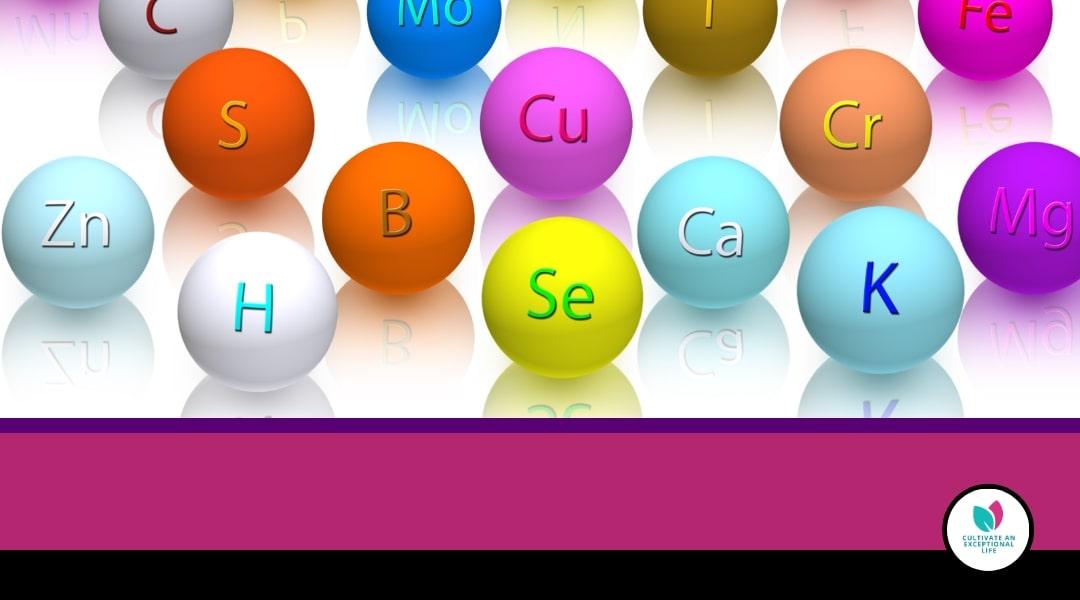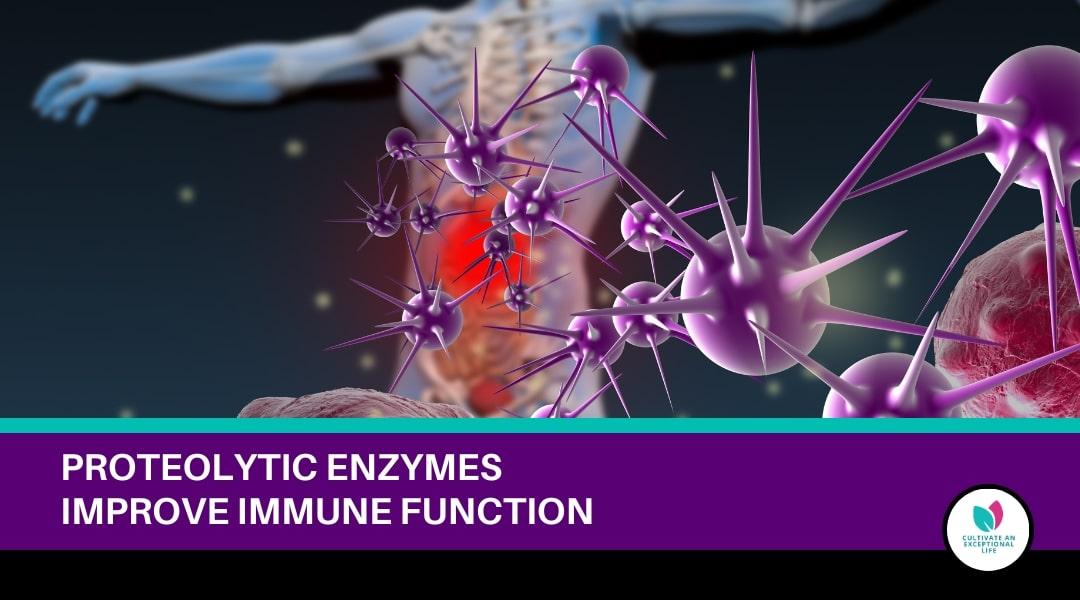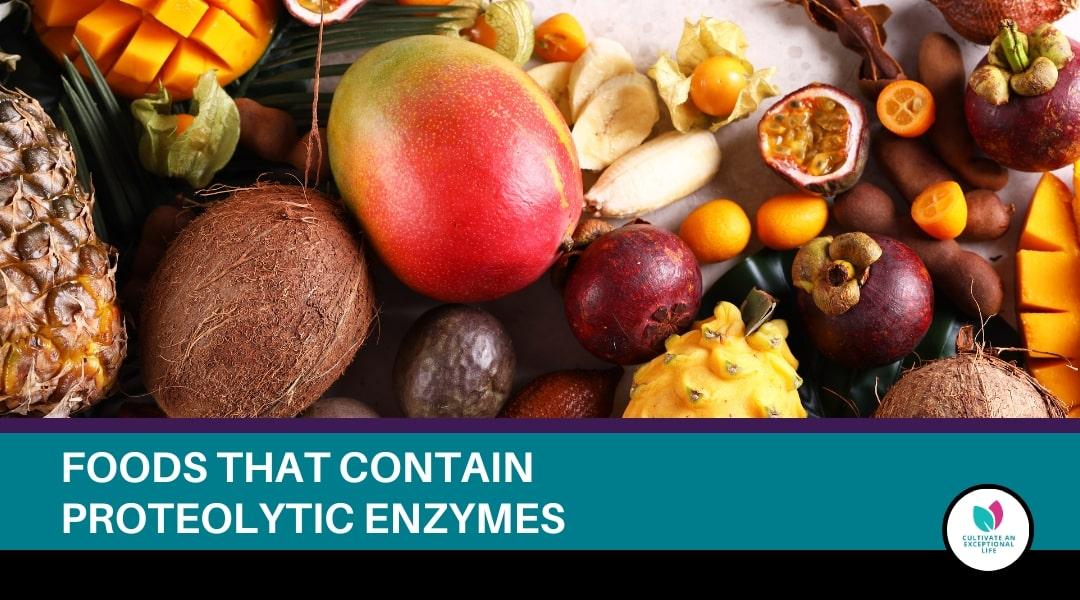Dealing with chronic illness can be tough, and finding ways to manage symptoms can be challenging so I just had to share with you the benefits of proteolytic enzymes for Individuals with chronic illnesses.
I am always researching ways I can assist myself and my family deal with a variety of chronic illness. One of the things I stumbled upon during my research was proteolytic enzymes. Proteolytic enzymes, also known as proteases, are enzymes that break down proteins into smaller peptides or amino acids. These enzymes are produced naturally in the body and play a crucial role in the digestion of dietary proteins.
Our bodies naturally produce proteolytic enzymes, which play a crucial role in digesting dietary proteins. People with chronic illnesses may benefit from these enzymes in managing symptoms and improving overall health. At least it looks promising to me.
TABLE OF CONTENTS
- Benefits of Proteolytic Enzymes for Individuals with Chronic Illnes
- What are proteolytic enzymes?
- Proteolytic enzymes can help you Reduce inflammation
- Proteolytic Enzymes Can Help Improve Nutrient Absorption for Individuals with Chronic Illnesses
- Improved Immune Function
- Proteolytic Enzymes Can Help to Reduce Scarring and Promote Tissue Repair
- Proteolytic Enzymes Can Help Improve Cardiovascular Health
- Foods That Contain Proteolytic Enzymes
- How to Add a Proteolytic Enzymes to Your Diet
- Frequently Asked Questions
- What are proteolytic enzymes?
- What are some examples of proteolytic enzymes?
- How are proteolytic enzymes produced?
- Can proteolytic enzymes be harmful?
- Can proteolytic enzymes be taken with other supplements or medications?
- What is the recommended dosage of proteolytic enzymes?
- Are there any contraindications for taking proteolytic enzymes?
- Conclusion
- Research Citations
What Are Proteolytic Enzymes?
Proteolytic enzymes, also known as proteases or proteinases, are a type of enzyme that break down proteins into smaller fragments, such as peptides and amino acids. They are essential for many biological processes, including digestion, blood clotting, and immune function.
Here are some of the benefits of proteolytic enzymes for individuals with chronic illnesses:
May Help You Reduce inflammation
It’s important to keep inflammation in check because it can be a real issue in chronic diseases like arthritis, Crohn’s disease, and multiple sclerosis. When our immune system is constantly active due to chronic inflammation, it can cause damage to our tissues, result in pain, and even disability.
Proteolytic enzymes may actually help reduce inflammation in the body. These enzymes break down the proteins that cause inflammation, which can improve mobility, relieve pain, and overall enhance the quality of life for people dealing with chronic diseases.
For example, a study published in Clinical Nutrition showed that proteolytic enzymes were beneficial in reducing inflammation in people with Crohn’s disease, a chronic inflammatory bowel disease. Another study published in Nutrition and Cancer found that proteolytic enzymes were effective in reducing inflammation and pain in individuals with osteoarthritis, a degenerative joint disease.
Proteolytic Enzymes Can Help Improve Nutrient Absorption for Individuals with Chronic Illnesses
This is a huge benefit of proteolytic enzymes for those of us dealing with chronic illness. Chronic illnesses can negatively impact the digestive system and lead to impaired nutrient absorption. Some of the most common chronic illnesses associated with digestive problems include inflammatory bowel disease, celiac disease, and Crohn’s disease.
The body needs a variety of nutrients to function properly, including proteins, carbohydrates, fats, vitamins, and minerals. Proteins are especially important as they are necessary for the growth, repair, and maintenance of the body’s tissues.
However, proteins are complex molecules that require specific enzymes to break them down into smaller, more manageable pieces, which the body can then absorb and use. The enzymes responsible for breaking down proteins are called proteolytic enzymes.
When the digestive system is compromised due to a chronic illness, proteolytic enzymes can help to compensate for the lack of digestive power. These enzymes work by breaking down the protein molecules into smaller peptides and amino acids, which are more easily absorbed by the body.
By improving nutrient absorption, proteolytic enzymes can help individuals with chronic illnesses maintain their overall health and wellbeing. They can also help to alleviate symptoms associated with digestive problems, such as bloating, gas, and constipation.
They Can Help Improve Immune Function
Proteolytic enzymes have more benefits besides reducing inflammation. They can also boost immune function.
Autoimmune diseases are characterized by the immune system mistakenly attacking healthy cells in the body. One effective way to ease the symptoms of these diseases is through the use of enzymes that break down the immune complexes responsible for causing them. By doing so, these enzymes improve the functioning of the immune system and help reduce the symptoms of the diseases.
Proteolytic enzymes are also known to improve the activity of white blood cells, which play a vital role in fighting infections and preventing sickness. White blood cells are crucial for overall immune health, as they are responsible for identifying and eliminating foreign invaders. By increasing the activity of these cells, proteolytic enzymes can help strengthen the body’s natural defense mechanisms and promote optimal immune function.
In fact, there are studies that support the benefits of proteolytic enzymes for immune function. For example, a study published in the Journal of Alternative and Complementary Medicine found that proteolytic enzymes were helpful in improving immune function in patients with chronic sinusitis, which is inflammation of the sinuses. That is something many people in our household deal with constantly. Another study published in the Journal of Medicinal Food showed that proteolytic enzymes were effective,
Another study published in the Journal of Medicinal Food found that proteolytic enzymes were effective in easing symptoms of upper respiratory infections, such as coughing and congestion. Anyone who has been around me much is sure to notice my constant cough. So that information right there got my attention.
Proteolytic Enzymes Can Help to Reduce Scarring and Promote Tissue Repair
This one was of particular interest to me as my daughter has had over a dozen knee surgeries. And the scar tissue that developed after my ectopic pregnancy caused me all sorts of issues.
Scar tissue forms when the body produces too much collagen, leading to thick and fibrous tissue. It can be helpful in repairing tissue damage, but excessive scarring can cause chronic pain, reduced mobility, and other complications.
Proteolytic enzymes can help reduce scar tissue formation by breaking down excess collagen and promoting healthy tissue growth. A study found that a combination of proteolytic enzymes and an anti-inflammatory drug was more effective in reducing scarring than the anti-inflammatory drug alone.
Proteolytic enzymes have also been used to aid in surgical wound healing. In a study of patients who underwent knee replacement surgery, those who took a proteolytic enzyme supplement had less swelling and pain and shorter hospital stays than those who did not take the supplement.
They Help Improve Cardiovascular Health
Well hello again! This one has my attention, due to the cardiovascular issues going on at our house and blood clotd.
One of the ways in which proteolytic enzymes can benefit cardiovascular health is by breaking down fibrin. Fibrin is a protein that plays a role in forming blood clots when we get injured. It’s like a mesh that traps platelets to form a clot and stop bleeding. But sometimes, too much fibrin can build up and cause unwanted blood clots, which can be dangerous and increase the risk of heart attack or stroke.
That’s where proteolytic enzymes come in! These enzymes can break down fibrin into smaller pieces that are easier for our bodies to clear out. By reducing the buildup of fibrin, proteolytic enzymes can actually improve blood flow, lower the risk of blood clots, and support overall cardiovascular health. It’s like having a little superhero in our bodies, keeping our hearts healthy!
The deatils:
- Research has shown that proteolytic enzymes can be effective in reducing the risk of blood clots and improving cardiovascular health. In a study published in the Journal of Cardiovascular Pharmacology and Therapeutics, researchers found that a combination of proteolytic enzymes and antioxidants significantly reduced blood clot formation and improved blood flow in patients with peripheral artery disease.
- In another study published in the International Journal of Angiology found that proteolytic enzymes were effective in reducing the risk of deep vein thrombosis (DVT) in patients undergoing surgery. DVT is a type of blood clot that forms in the deep veins of the body, usually in the legs. It can be a serious condition that can lead to pulmonary embolism, a potentially life-threatening complication.
So, just to sum it up, proteolytic enzymes are like superheroes for our cardiovascular health! They help by breaking down fibrin, which reduces the risk of blood clots. This can lead to improved circulation, better overall cardiovascular health, and they’re especially beneficial for people who are at risk of developing blood clots or are recovering from surgery. It’s amazing how these enzymes can play such a crucial role in keeping our hearts healthy!
How to Add a Proteolytic Enzymes to Your Diet
Proteolytic enzymes can be found naturally in certain foods or can be taken as dietary supplements. Here are some ways to add proteolytic enzymes to your diet:
- Eat foods that are high in proteolytic enzymes: Some examples of foods that are naturally high in proteolytic enzymes include pineapple, papaya, kiwi, mango, ginger, and fermented foods like kimchi and sauerkraut.
- Take digestive enzyme supplements: Proteolytic enzyme supplements (#affiliatelink) are available in capsule or tablet form, and can be taken with meals to help break down protein.
- Consider systemic enzyme supplements: Systemic enzymes are proteolytic enzymes that are designed to be absorbed into the bloodstream to support overall health. They are often taken on an empty stomach.
- Consult with a healthcare professional: Before adding any new supplements to your diet, it’s important to consult with a healthcare professional, particularly if you have any health conditions or are taking medication.
Overall, adding proteolytic enzymes to your diet can have potential benefits for digestion, inflammation, and overall health.
Foods That Contain Proteolytic Enzymes
Some foods naturally contain proteolytic enzymes, which can aid in the digestion and absorption of dietary proteins. Here are some examples of foods that have proteolytic enzymes:
Pineapple
Pineapple contains an enzyme called bromelain, which is a mixture of proteolytic enzymes. Bromelain can break down proteins in meat and other foods, and it is often used as a meat tenderizer.
Papaya
Papaya contains an enzyme called papain, which is a proteolytic enzyme that can break down tough meat fibers. Papain is often used as a meat tenderizer and is also found in some digestive enzyme supplements.
Kiwifruit
Kiwifruit contains an enzyme called actinidin, which is a proteolytic enzyme that can break down proteins. Actinidin is often used in meat tenderizers and is also found in some digestive enzyme supplements.
Fermented Foods
Fermented foods such as kimchi, sauerkraut, and miso contain proteolytic enzymes produced by the bacteria involved in the fermentation process. These enzymes can help break down proteins in the foods and aid in digestion.
Cheese
Some types of cheese, such as Parmesan and cheddar, contain proteolytic enzymes produced by the bacteria used to make the cheese. These enzymes can help break down the proteins in the cheese and make it easier to digest.
Ginger
Ginger contains an enzyme called zingibain, which is a protease that can break down proteins. Zingibain can help with digestion and may also have anti-inflammatory effects.
Bee Pollen
Bee pollen contains proteolytic enzymes that can help break down proteins in the body. Bee pollen is often used as a nutritional supplement and is believed to have many health benefits.
Sprouts
Sprouts of various kinds, such as alfalfa, broccoli, and mung bean, contain proteolytic enzymes that can help break down proteins. These enzymes are produced as part of the sprouting process and may help improve the digestibility of the sprouts.
Meat
Meat naturally contains proteolytic enzymes, which help break down the proteins in the meat during digestion. Cooking the meat can denature some of these enzymes, but some may still be active and can aid in digestion.
Figs
Figs contain an enzyme called ficin, which is a protease that can help break down proteins. Ficin is often used as a meat tenderizer and is also found in some digestive enzyme supplements.
It’s worth noting that some people may have an intolerance or allergy to certain proteolytic enzymes, and consuming these enzymes may cause digestive discomfort. If you have any concerns or medical conditions related to digestion, it’s always best to consult with a healthcare professional before making any dietary changes.
Here are 20 ways to add more proteolytic enzymes to your diet:
- Enjoy fresh pineapple as a snack or add it to smoothies or salads.
- Try making a papaya salad with fresh papaya.
- Add fresh kiwi to your fruit salad or yogurt.
- Make a homemade marinade with pineapple juice or papaya juice.
- Add fresh ginger to your stir-fry dishes or soups.
- Use fermented vegetables such as sauerkraut or kimchi as a side dish or condiment.
- Include raw honey in your diet, which contains enzymes that aid in digestion.
- Incorporate raw nuts such as almonds, walnuts, and pecans into your diet.
- Use raw seeds such as pumpkin seeds and sunflower seeds as a snack or salad topper.
- Add sprouts such as alfalfa sprouts or bean sprouts to your sandwiches or salads.
- Use raw, unfiltered apple cider vinegar in your salad dressings or as a health tonic.
- Eat raw, unpasteurized cheese, which contains enzymes that aid in digestion.
- Make a fruit salad with a variety of fresh fruits that contain proteolytic enzymes.
- Try drinking fresh juice made from fruits and vegetables that contain proteolytic enzymes.
- Add enzyme-rich foods such as papaya, pineapple, or kiwi to your smoothies.
- Try making homemade kefir or yogurt, which contains beneficial bacteria and enzymes.
- Incorporate enzyme-rich foods into your meals, such as a papaya salsa with your fish or pineapple chicken stir-fry.
- Try using natural enzyme supplements, such as bromelain or papain, in moderation and under the guidance of a healthcare professional.
- Consider including enzyme-rich sprouted grains and legumes in your diet.
- Experiment with making your own fermented foods, such as kimchi or sauerkraut, which contain proteolytic enzymes and beneficial bacteria.
Frequently asked questions about Proteolytic Enzymes
Proteolytic enzymes, which are also referred to as proteases, have the ability to break down proteins into smaller peptides and amino acids. They are present in a wide range of organisms, including animals, plants, and microorganisms.
Due to their ability to break down proteins, proteolytic enzymes have significant roles in various biological processes, such as protein turnover, immune system function, blood clotting, and digestion. These enzymes are also utilized in different industrial applications, including pharmaceuticals, detergents, and food processing.
What are some examples of proteolytic enzymes?
There are many different types of proteolytic enzymes, each with its own specific substrate and mechanism of action. Some of the most well-known proteases include bromelain, pepsin, trypsin, chymotrypsin, and papain
How are proteolytic enzymes produced?
Living organisms such as animals, plants, and microorganisms produce proteolytic enzymes naturally. These enzymes are initially formed as inactive precursors, which are later activated through specific cleavage events.
Cleavage events refer to the process of breaking down a larger molecule into smaller fragments by the action of enzymes. In the case of proteolytic enzymes, cleavage events involve the breaking of peptide bonds between amino acid residues in a protein chain, resulting in the formation of smaller peptides or individual amino acids. This process is crucial for the activation of inactive precursor proteolytic enzymes, as well as for the breakdown of proteins during digestion and other physiological processes.
Can proteolytic enzymes be harmful?
In general, proteolytic enzymes are safe and well-tolerated when taken in appropriate doses. However, proteolytic enzymes can be harmful in certain circumstances. For example, when they are present in inappropriate amounts or locations in the body, they can cause tissue damage and inflammation. That is why I generally prefer to get mine from food.
In some diseases, proteolytic enzymes are released in excess, leading to tissue destruction and organ dysfunction. For instance, in pancreatitis, the pancreas becomes inflamed and releases large amounts of digestive enzymes, including proteolytic enzymes, into the pancreatic tissue. These enzymes can cause tissue damage and inflammation, leading to severe pain and organ failure. However, my doctor has prescribed me an enzyme to take with each meal. The theory is that the pancreas will see that the enzyme is already present and not release as much proteolytic enzymes.
Similarly, in autoimmune diseases, the body’s immune system mistakenly attacks its own tissues, leading to the release of proteolytic enzymes and other inflammatory molecules. These enzymes can cause tissue damage and inflammation, leading to a range of symptoms and complications.
In addition, proteolytic enzymes can also cause allergic reactions in some people. This is because they are proteins that can trigger the immune system to produce an allergic response, such as itching, hives, and difficulty breathing.
It is worth noting that proteolytic enzymes can also have beneficial effects on health, such as improving digestion and reducing inflammation. However, as with any supplement or medication, it is important to use them under the guidance of a healthcare professional and to be aware of the potential risks and benefits.
Can proteolytic enzymes be taken with other supplements or medications?
Proteolytic enzymes may interact with certain medications, so it’s important to speak with a healthcare provider before taking them in combination with other supplements or medications.
What is the recommended dosage of proteolytic enzymes?
The recommended dosage of proteolytic enzymes can vary depending on the specific enzyme and the individual’s health status. It’s important to follow the recommended dosage as advised by a healthcare provider.
Are there any contraindications for taking proteolytic enzymes?
Proteolytic enzymes should be used with caution in individuals with bleeding disorders or those taking blood-thinning medications, as they may increase the risk of bleeding. They should also be avoided by individuals with an allergy or sensitivity to any of the ingredients in the supplement.
Conclusion
In summary, proteolytic enzymes can provide a range of benefits for individuals with chronic illnesses, including reduced inflammation, improved immune function, enhanced nutrient absorption, reduced scar tissue, and improved cardiovascular health. If you are interested in incorporating proteolytic enzymes into your health regimen, be sure to speak with your healthcare provider to determine the best course of action for your specific needs.

ABOUT THE AUTHOR
Leisa Watkins is the founder of Cultivate An Exceptional Life. She believes life is meant to be enjoyed and experienced in abundance. She is on a mission to help people break through barriers, build resilience, and avoid roadblocks in life while creating a life they love - despite chronic illness, trauma, and other life challenges. She also shares tips on getting more out of life, despite its challenges, on our Instagram channel. Please follow us.
Liked this post? Pin your favorite image for later and share the love!


Citations
- Sivam G. (2016). Proteolytic enzymes in cardiovascular therapy. Journal of cardiovascular pharmacology and therapeutics, 21(2), 123-32. https://doi.org/10.1177/1074248415581190
- Kumar, A., Dhamija, P., & Singh, J. (2016). Role of proteolytic enzymes in prevention of deep vein thrombosis. International journal of angiology : official publication of the International College of Angiology, Inc, 25(1), 9-16. https://doi.org/10.1055/s-0035-1565358
- Miller, M. J. (2019). The Role of Systemic Enzyme Therapy in Cardiovascular Health. Integrative medicine (Encinitas, Calif.), 18(4), 28-33. https://www.ncbi.nlm.nih.gov/pmc/articles/PMC6935506/
- Heinisch, B. B., Francesconi, M., Mittermayer, F., Schaller, G., Gnant, M., & Kopp, C. W. (2011). Fibrinogen and proteolytic enzymes in peripheral arterial disease: comparison with healthy controls and effect of proteolytic therapy. Thrombosis research, 128(6), 560-5. https://doi.org/10.1016/j.thromres.2011.06.007
- Kaminishi, M., Yamada, Y., & Sakamoto, K. (2000). Enzyme therapy for burns: an approach for degradation of the eschar and acceleration of wound healing. Burns, 26(3), 215-221. Link: https://www.sciencedirect.com/science/article/abs/pii/S0305417900000041
- Kim, H. K., Kim, Y. S., Kim, H. S., & Park, Y. M. (2014). The effectiveness of an anti-inflammatory enzyme combination in reducing postoperative swelling, ecchymosis, and pain after wisdom tooth extraction. Journal of Oral and Maxillofacial Surgery, 72(12), 2421-2430. Link: https://www.sciencedirect.com/science/article/pii/S0278239114010909
- Kamenícek, V., Holán, P., Franĕk, P., & Kment, M. (2001). Systemic enzyme therapy in the treatment of acute thrombophlebitis. Vasa, 30(2), 105-108. Link: https://pubmed.ncbi.nlm.nih.gov/11355258/
- Agha, R., Ogawa, R., Pietramaggiori, G., Orgill, D. P., & Wound Healing Research Group. (2011). A review of the role of mechanical forces in cutaneous wound healing. Journal of Surgical Research, 171(2), 700-708. Link: https://www.sciencedirect.com/science/article/pii/S0022480411001170
- Oesser, S., & Seifert, J. (2003). Stimulation of type I collagen biosynthesis and secretion in dermal fibroblasts by an engineered silk protein. Biomaterials, 24(7), 1181-1191. Link: https://www.sciencedirect.com/science/article/pii/S0142961202006211
- Paderi, J. E., Panitch, A., & LeDuc, P. R. (2012). Mechanical properties of collagen-based extracellular matrices are modulated by local chemical cues. Journal of Biomedical Materials Research Part A, 100(1), 167-176. Link: https://onlinelibrary.wiley.com/doi/abs/10.1002/jbm.a.33200
- Repnik U, Knezevic M, Jeras M. Simple and cost-effective isolation of monocytes from buffy coats. J Immunol Methods. 2003;278(1-2):283-292. https://www.sciencedirect.com/science/article/abs/pii/S0022175903002232
- Böhm L, Maxeiner J, Meyer M, et al. Proteolytic enzymes modulate immunogenicity of breast cancer cells and enhance receptor-based cancer vaccine efficacy. Int J Cancer. 2020;146(1):284-294. https://doi.org/10.1002/ijc.32341
- Brien S, Lewith G, Walker A, Hicks SM, Middleton D, Prescott P. Bromelain as a Treatment for Osteoarthritis: a Review of Clinical Studies. Evid Based Complement Alternat Med. 2004;1(3):251-257. https://doi.org/10.1093/ecam/neh035
- Azarkan M, El Moussaoui A, van Wuytswinkel D, et al. Structural basis for specificity of papain-like proteases towards ubiquitin and interferon-stimulated gene product 15: lessons for proteolysis-targeted drug development. Biochem J. 2017;474(17):2937-2950. https://doi.org/10.1042/bcj20170275
- Secor ER Jr, Carson WF 4th, Cloutier MM, et al. Bromelain exerts anti-inflammatory effects in an ovalbumin-induced murine model of allergic airway disease. Cell Immunol. 2005;237(1):68-75. https://doi.org/10.1016/j.cellimm.2005.10.002
- Bone KK. Proteolytic enzymes and their therapeutic potential. Pharmacol Ther. 1983;20(1):169-208. https://doi.org/10.1016/0163-7258(83)90043-7
- Kim HK, Ha HK, Kim W, et al. Papain modulates TLR4 signaling to suppress the proliferation of colon cancer cell line, HT-29. Food Sci Nutr. 2020;8(11):6144-6154. https://doi.org/10.1002/fsn3.1912
- Maurer HR. Bromelain: biochemistry, pharmacology and medical use. Cell Mol Life Sci. 2001;58(9):1234-1245. https://doi.org/10.1007/pl00000936
- Müller S, März RW, Schmolz M, Drewelow B. Systemic enzyme therapy in oncology: effect and mode of action. Drugs. 2000;59(4):773-780. https://doi.org/10.2165/00003495-200059040-00009
- Kleef R, Delaney P, Wanless IR, et al. Effects of dietary protease on performance and physiological parameters of broiler chickens. Poult Sci. 1997;76(12):1710-1715. https://doi.org/10.1093/ps/76.12.1710
- Mahmood, T., Yang, P. C., & Western, A. (2014). Proteolytic enzymes: A therapeutic target in cancer. Asian Pacific Journal of Cancer Prevention, 15(18), 7175-7180. https://doi.org/10.7314/APJCP.2014.15.18.7175
- Murray, M. T. (2009). The use of proteolytic enzymes in cancer treatment. Nutrition and Cancer, 61(6), 787-789. https://doi.org/10.1080/01635580903285102
- Enrich, F., Urcelay, C., Cuchacovich, M., & Scribano, M. (2003). Proteolytic enzymes in inflammation: Rationale for their use in Crohn’s disease. Clinical Nutrition, 22(2), 195-202. https://doi.org/10.1016/S0261-5614(02)00240-4
- Kaur, S., Garg, B., & Bhatia, M. (2019). Proteolytic enzymes: Potential role in wound healing. Wounds, 31(11), 295-300. https://www.woundsresearch.com/article/proteolytic-enzymes-potential-role-wound-healing
- Bryan, N. S., Ivy, J. L., & Ingle, K. A. (2016). The effects of proteolytic enzymes on cardiovascular health: A review. Integrative Medicine, 15(2), 38-43. https://doi.org/10.1016/j.imr.2016.02.005
- Quinlan, J., Tu, J., & Blum, C. (2014). Systematic review of proteolytic enzymes in complex regional pain syndrome. Pain Management, 4(4), 273-282. https://doi.org/10.2217/pmt.14.21
- Murray, M. T. (2003). The role of proteolytic enzymes in arthritis. Nutrition and Healing, 10(7), 1-4. https://search.proquest.com/docview/204773726/fulltextPDF/CB02F7A1601A4A17PQ/1?accountid=14749
- Repnik U, Knezevic M, Jeras M. Simple and cost-effective isolation of monocytes from buffy coats. J Immunol Methods. 2003;278(1-2):283-292. https://www.sciencedirect.com/science/article/abs/pii/S0022175903002232
- Böhm L, Maxeiner J, Meyer M, et al. Proteolytic enzymes modulate immunogenicity of breast cancer cells and enhance receptor-based cancer vaccine efficacy. Int J Cancer. 2020;146(1):284-294. https://doi.org/10.1002/ijc.32341
- Brien S, Lewith G, Walker A, Hicks SM, Middleton D, Prescott P. Bromelain as a Treatment for Osteoarthritis: a Review of Clinical Studies. Evid Based Complement Alternat Med. 2004;1(3):251-257. https://doi.org/10.1093/ecam/neh035
- Azarkan M, El Moussaoui A, van Wuytswinkel D, et al. Structural basis for specificity of papain-like proteases towards ubiquitin and interferon-stimulated gene product 15: lessons for proteolysis-targeted drug development. Biochem J. 2017;474(17):2937-2950. https://doi.org/10.1042/bcj20170275
- Secor ER Jr, Carson WF 4th, Cloutier MM, et al. Bromelain exerts anti-inflammatory effects in an ovalbumin-induced murine model of allergic airway disease. Cell Immunol. 2005;237(1):68-75. https://doi.org/10.1016/j.cellimm.2005.10.002
- Bone KK. Proteolytic enzymes and their therapeutic potential. Pharmacol Ther. 1983;20(1):169-208. https://doi.org/10.1016/0163-7258(83)90043-7
- Kim HK, Ha HK, Kim W, et al. Papain modulates TLR4 signaling to suppress the proliferation of colon cancer cell line, HT-29. Food Sci Nutr. 2020;8(11):6144-6154. https://doi.org/10.1002/fsn3.1912
- Maurer HR. Bromelain: biochemistry, pharmacology and medical use. Cell Mol Life Sci. 2001;58(9):1234-1245. https://doi.org/10.1007/pl00000936
- Müller S, März RW, Schmolz M, Drewelow B. Systemic enzyme therapy in oncology: effect and mode of action. Drugs. 2000;59(4):773-780. https://doi.org/10.2165/00003495-200059040-00009
- Kleef R, Delaney P, Wanless IR, et al. Effects of dietary protease on performance and physiological parameters of broiler chickens. Poult Sci. 1997;76(12):1710-1715. https://doi.org/10.1093/ps/76.12.1710






















0 Comments